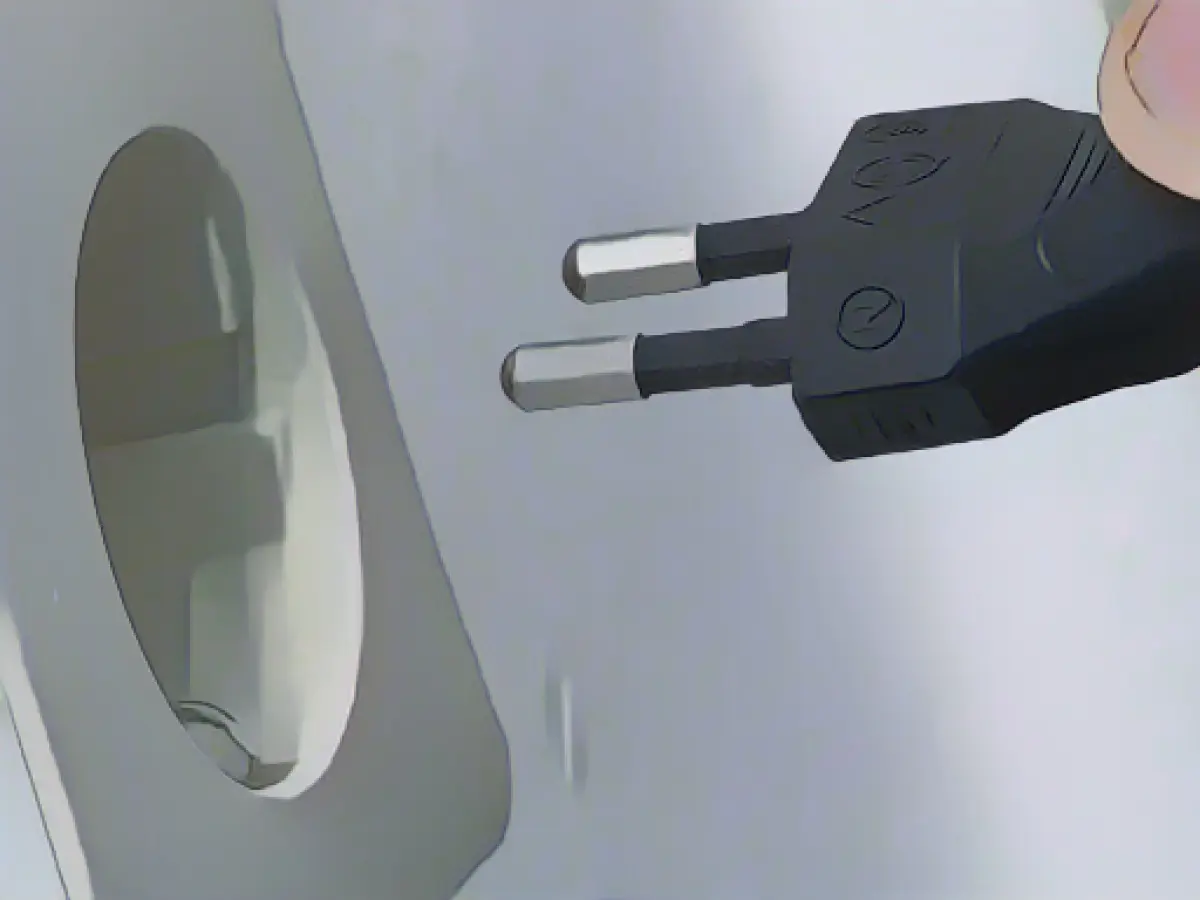SPD wants to extend price brakes - Portals: Market recovers
After the planned expiry of the price brakes for electricity and gas at the end of the year, households can expect comparatively low additional costs. This is the result of calculations by tariff comparison portals.
Over the year, a typical household with a consumption of 20,000 kilowatt hours will have to pay 26 euros (1.1 percent) more for gas and one euro more for electricity, as calculated by the Verivox portal.
Federal Finance Minister Christian Lindner (FDP) had announced that the state gas and electricity price brakes would expire at the end of the year and not at the end of March 2024. However, there is resistance to this from the coalition partner SPD. General Secretary Kevin Kühnert told the Kölnische Rundschau newspaper that his party believes energy price brakes are also necessary for 2024. There were similar statements from the SPD parliamentary group.
Scholz: cushioning the economic consequences of the war
The price brakes were introduced in March of this year and also applied retroactively for January and February. They were intended to protect consumers from being overburdened by exploding energy prices as a result of the Russian attack on Ukraine.
Federal Chancellor Olaf Scholz (SPD) said at a state party conference in Schönefeld: "It was right to subsidize the high prices for citizens." The government will continue to do everything it can to cushion the economic consequences of the war.
Old contracts often more expensive
According to Verivox, however, the energy market has now recovered. Many suppliers lowered their prices for the new year. Customers with older contracts should now switch to a new tariff if necessary. According to the calculations, anyone still on a basic supply tariff will have to pay 82 euros more for gas and five euros more for electricity next year if the brakes are eased three months earlier.
Finance Minister Lindner announced this on Friday. The background to this is the budget ruling by the Federal Constitutional Court, which means that the government is now missing out on billions. "It cannot be assumed that we will have an emergency situation with electricity, gas and economic sustainability at the beginning of next year," said Lindner on Deutschlandfunk radio.
Kühnert: No decision by the coalition
"That may be his opinion - but it is not a decision by the coalition," commented Kühnert on Lindner's announcement. Whether there will still be energy price brakes in 2024 must now be negotiated politically.
The Bundestag had actually only decided the day after the Karlsruhe ruling to apply the brakes by March 31. Economics Minister Robert Habeck (Greens) saw this as a precautionary measure in case prices rise again. However, in view of the foreseeable need to make savings as a result of the budget ruling, this is no longer at the top of the list of priorities for the Greens either. At the party conference in Karlsruhe on Saturday, it was stated that prices are currently more moderate anyway.
Criticism from trade unions and the CDU/CSU
"Letting the price brakes expire before winter will cause additional uncertainty," criticized Yasmin Fahimi, Chairwoman of the German Trade Union Confederation (DGB). CSU leader Markus Söder expressed similar views. He accused the government of lacking a plan.
The chief budget officer of the CDU/CSU parliamentary group, Christian Haase (CDU), told the German Press Agency in Berlin on Saturday that the Karlsruhe court had caught the coalition of SPD, Greens and FDP in a breach of the constitution. "This self-inflicted breach of the law must now be rectified. The expiry of the energy price brake is unfortunately the unfortunate result of this ruling."
Meanwhile, the comparison portal Check24 reminded consumers that VAT on gas and heating will rise to the full amount again in March after two years. This would result in additional annual expenditure of 224 euros for the average household.
- Despite the upcoming expiration of price brakes for electricity and gas, Federal Finance Minister Christian Lindner's coalition partner, the SPD, insists on maintaining price brakes for consumers in 2024, citing the need to protect consumers from high energy prices.
- The announcement by Finance Minister Lindner that the state gas and electricity price brakes will end three months earlier than previously planned has led to concern from the SPD, as consumers with older contracts may face higher energy costs, according to calculations by the Verivox portal.
- The SPD's General Secretary Kevin Kühnert has stated that energy price brakes are necessary to shield consumers from increasing energy prices, and any decision about maintaining them in 2024 will require political negotiations within the coalition.
Source: www.dpa.com








